If your partner is pregnant, this can be an emotional and overwhelming time for both of you. You may feel worried about how you will deal with becoming a parent. Here are some tips to help. You can find more on the Fathers Network Scotland and Tiny Happy People websites.
Wellbeing tips for partners and dads-to-be
Tip #1: Spend time with your baby
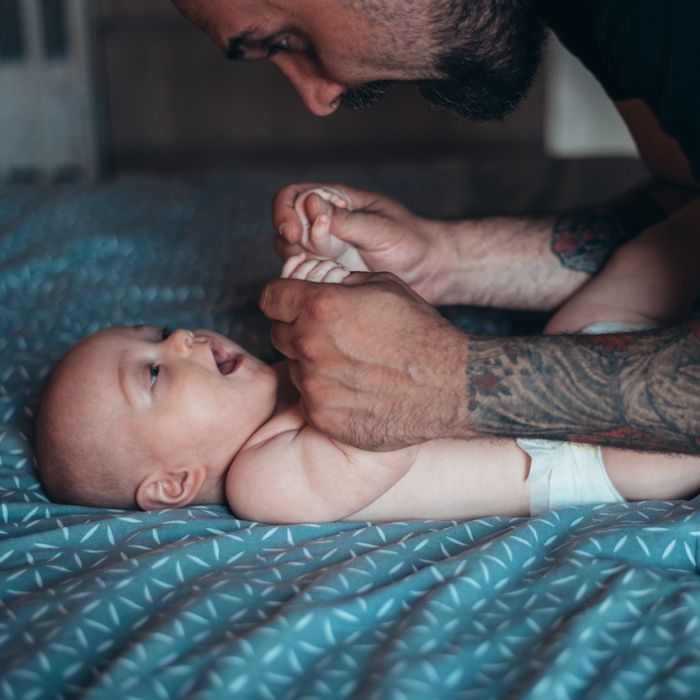
Even before your wee one’s born you can spend time talking and singing to the bump! Once they’re born, try and stay close and cuddle them, talk to them and sing to them. They won’t understand what you’re saying, but the sound of your voice will be reassuring. But remember, if it feels too much or you’re overwhelmed it’s okay to need some space.
Tip #2: Attend the scans
If you can, go with your partner for their ultrasound scans. Many dads say the scan where they hear the heartbeat for the first time is when the pregnancy feels real. And there’s nothing like seeing your wee one as a tiny blob in the womb to make it all seem real too, and to help you develop a bond with them before they’re even born. If you have a photo or video of the scan, you could keep taking a look at it to deepen that connection.
Tip #3: Talk to the bump

Babies’ hearing starts to develop at around 16 weeks. So talking to your partner’s bump and making sounds can actually help with your baby's brain development before birth. In fact, they find it easier to hear men's lower voices. This video on the Tiny Happy People website explains more.
Tip #4: Practical steps
Waiting to welcome a baby into the world can be a stressful time, and you might feel like you don’t know what you can do to help. But there are lots of practical things you can do, like:
- building a cot for the new arrival (although remember baby can always use their Baby Box for sleeping!)
- sourcing items you’ll need, like a buggy
- working out where baby will sleep and where you’ll store all their stuff
- preparing food in advance and freezing meals, so when baby comes you can focus on time as a family or resting without worrying about cooking
- packing overnight bags ready for the big day and making sure you know where things are – this makes it easier if your partner has to stay in hospital.
Our page on supporting your partner when they’re pregnant has lots more suggestions.
Tip #5: Think about what life will be like with the baby
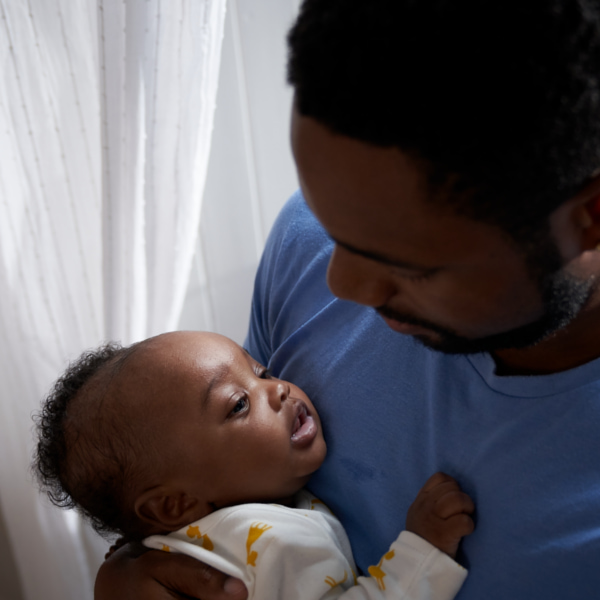
Just imagining what life might be like once your wee one comes along will help you prepare. You could think about the kind of dad you’d like to be, and what you need to do to make that happen. But don’t set unrealistic goals – the only perfect parents are people who aren’t parents yet!
Tip #6: Take any opportunities to learn more
The more you know about what’s in store, the more prepared you’ll be. Dads have the right to take unpaid time off to go to two antenatal classes with their partners – and many employers will pay for the time. So why not take advantage of this?
While the idea of going to antenatal and parenting classes may not fill you with enthusiasm, it’s a great way to get ready for the birth and find out more about what being a dad involves. Classes also give you the chance to meet other parents who are in the same boat as you and who you can share your experiences with.
This short video on the Tiny Happy People website explains more about the benefits of attending classes for dads.
Tip #7: Talk to your partner
Talk to your partner about how you feel. It’s a good idea to start doing this during the pregnancy – grabbing 10 minutes in the evening will be easier now than it will once baby’s here. And if you get into the habit of chatting together every day you might be able to keep it going after the birth. It may not be easy if you’re both exhausted, but it’s worth it!
Tip #8: Talk to friends and family
Chances are you've got family and friends who have been through this before. Chatting to them can be really rewarding as they can pass on their experiences and top tips, and it's great for hearing about those unforgettable moments that only us dads will appreciate. But remember, in the end it’s up to you to decide what kind of parent you want to be.
Tip #9: Reduce your stress levels
In order to look after your family, you need to look after yourself too. Try to eat healthily and exercise when you can, and make some time for the things you enjoy. But be realistic! Little things like walks with your baby in a sling or their pram or all together as a family will help clear everyone’s heads. And while nutrition is important, in the early days you need to create a balance between healthy and easy, so don’t be too hard on yourself.
Tip #10: Ask for help
There are lots of people out there happy to help! So take any help you can with cooking, cleaning, shopping or running errands. Let people help you so you can spend time with your family, and can rest, relax or get some time to yourself.
Try talking to your friends and family, and be honest about how you’re feeling – it’s perfectly normal to feel anxious or down, particularly in the current situation, but it’s important to get help. Your health visitor or family nurse is also there to listen and help – they want the best for everyone in the family.
There are also lots of organisations you can get in touch with – the Fathers’ Network Scotland Directory lists dad-friendly groups and organisations all around the country which provide support, advice or information on your new parenting role.
Tip #11: Have fun
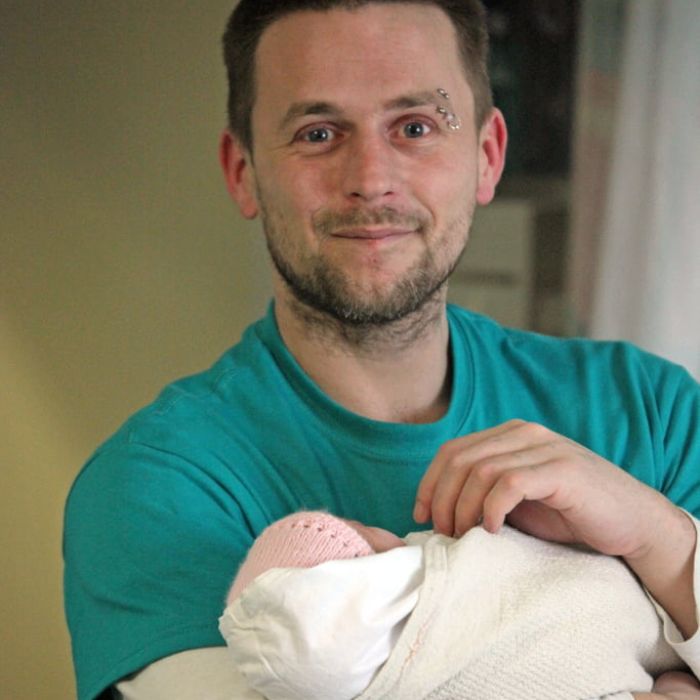
Yes, the arrival of a new baby can be exhausting and stressful, but it’s also wonderful. Don’t forget to enjoy this special time with your wee one. Enjoy lots of cuddles and skin-to-skin time. Take plenty of photos and share them with your friends and family. Relax in the quiet times and savour the peace. You’ve got this!
Tip #12: Download the Baby Buddy app
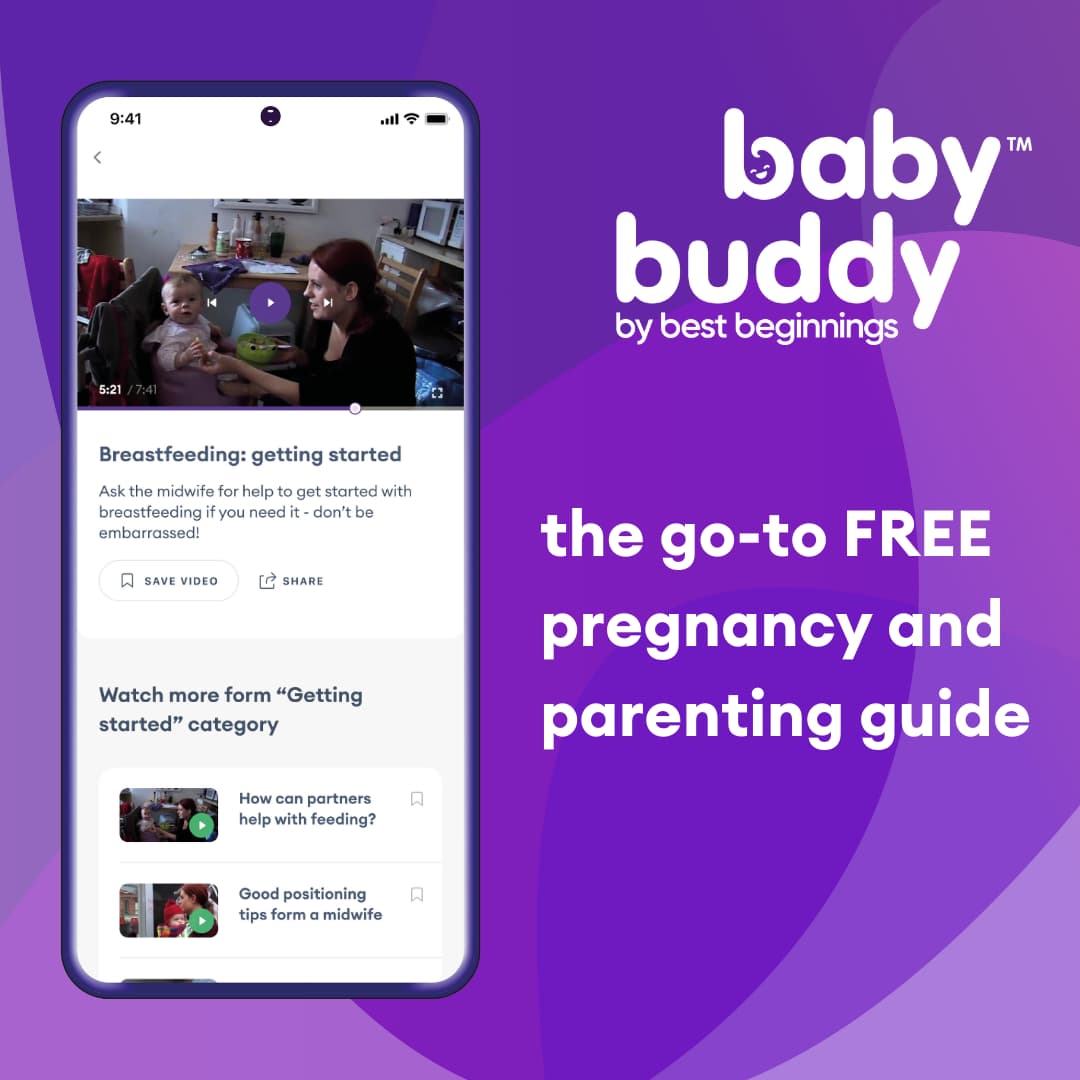
The Baby Buddy app from Best Beginnings offers personalised daily information to dads and partners on their pregnancy and parenting journey. It's packed with advice and information to help you feel more confident welcoming your wee one into the world. You can download the Baby Buddy app here.
Tips for supporting your partner if they're breastfeeding
In this film, dad Ryan shares his tips for supporting your partner in the early days.
 Activities & Play
Activities & Play Behaviour
Behaviour Childcare
Childcare Development & Growing Up
Development & Growing Up Family, Friends & Relationships
Family, Friends & Relationships Feeding Your Baby
Feeding Your Baby Food & Eating
Food & Eating Health & Safety
Health & Safety Mental Health & Wellbeing
Mental Health & Wellbeing Money & Work
Money & Work Online Behaviour & Safety
Online Behaviour & Safety Pregnancy & First Days
Pregnancy & First Days School & Education
School & Education Sleep
Sleep



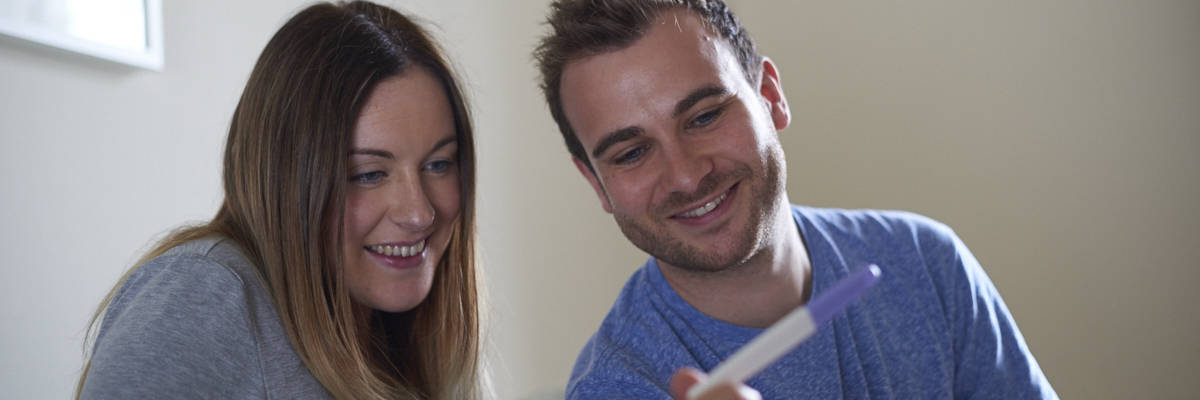
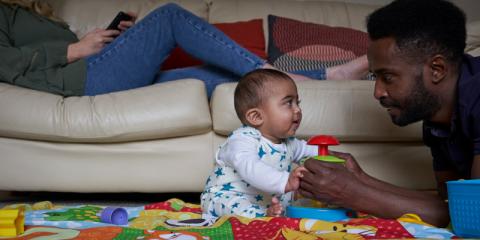

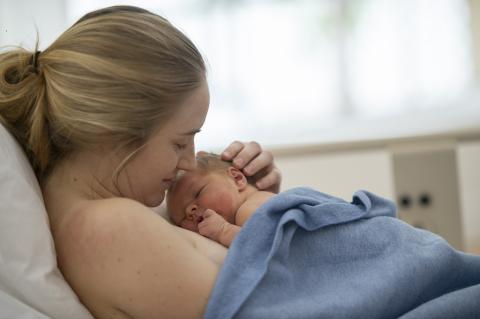

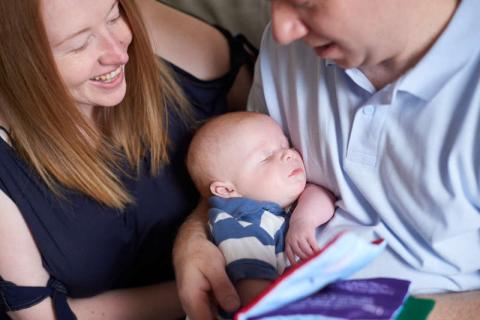


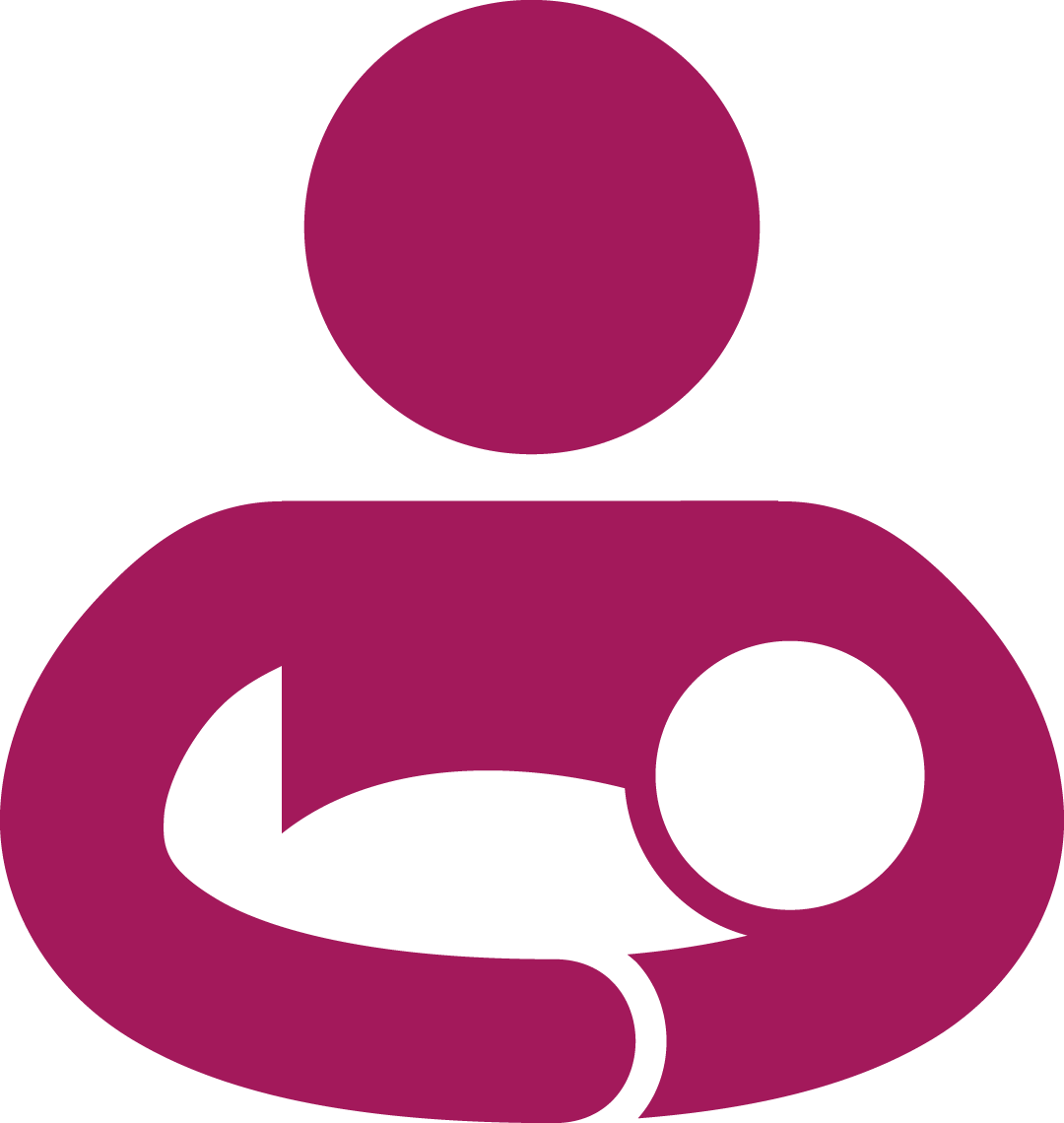 Feeding Your Baby
Feeding Your Baby
 Sleep
Sleep